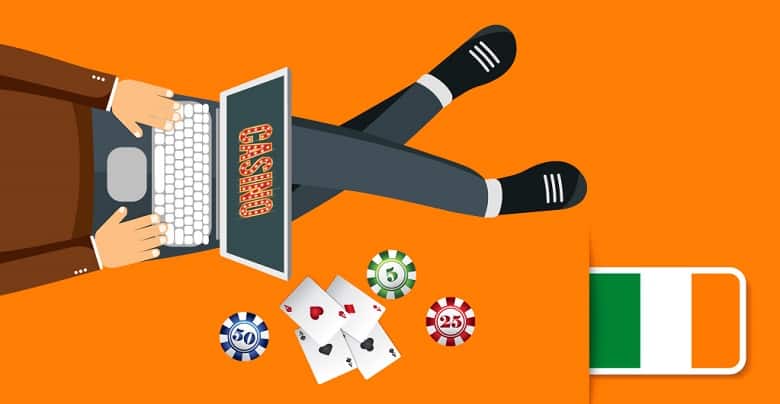A lot can be said about gambling and the Irish, considering 'the luck o' the Irish' – after all the expression had to come from somewhere!
- Las Vegas Gambling Stories
- Gambling Stories Ireland Jobs
- Gambling Stories Ireland And Greg Olsen
- Gambling Stories Ireland History
- Gambling Stories Ireland Wikipedia
Ghost-written by the Sunday Independent's Dermot Crowe, Rory's Story tells the story of 33-year-old O'Connor's troubled childhood, his descent into a gambling addiction and suicidal thoughts,. IRELAND may be a small country – but it's one of the world's biggest gambling nations. More than 6,000 people work in betting shops, and there are another 1,000 employed by online operators. Casinos are open 24/7, horse racing is a national pastime, and fixed odds betting terminals are commonplace on the shop floor of bookies.

Here's a look at the characteristic gambling luck of the Irish, some popular gambling folklore from that side of the pond and just where it all comes from – and, of course, whether any of it is useful to you when you gamble.
The Two Gamblers and the Fairies
We found this tale in the book Irish Tales of Fairies and the Ghost World.
The story starts when two gamblers run into each other during their travels; deciding two heads are better than one, they form a gambling pair. Soon, one of them has a dream that there's gold to be found – and of course, the two men go looking. Unfortunately, they find nothing.
Some time later, one of the gamblers sets out to look for the gold again – instead, he finds and follows a group of fairies. There, he finds a coffin and carries it home. When they open it up, they find a sleeping woman. The fairies later tell the two men that there's only one way to revive the woman – and of course, they do.
Las Vegas Gambling Stories

The woman asks one of the gamblers to carry a letter to her parents. Once they get over the shock, they offer him her daughter's hand in marriage – but soon 'thought the man too small' according to this account, until he shows them his winnings. Still, they turn back home – until the daughter says, 'He is the right man to be my husband.'
Inexplicably, the gamblers split their winnings between the two of them – one gets the girl, and one doesn't. Both get money. We're not sure what to learn from this story.
Related Articles:
The Hellfire Club's Cloven Hoof
Like many legends, there are several ways to tell this story. The original story takes place at the Hellfire Club in the Dublin Mountains – a notorious club and the subject of more legends than we could list here. The story tells of a card game between a group of people: when one of the players drops a card – some versions say the Ace of Spades, of course – he spots a cloven hoof under the table.
Versions of this story can be found on Hellfire Club Dublin and the BBC– or you can take a ghost tour in Dublin to see the location of the game for yourself.
Gambling in Ireland
Just how big is gambling in Ireland? Well, it's estimated that as much as 40% of adult Ireland will have gambled at some point in their lives – and that's just talking about the national lottery.
When compared to international statistics, approximately 80% of the USA admits they have gambled in their life, while 2016 statistics say that about 64% of Americans admitted they gambled on something or other in the past year.
The UK measures in with 48% of people saying they gambled in the past month.
The Irish land right in the middle there – gambling to more or less than the rest of us. So what about that luck?
The Gambler McCabe
If you dig a little deeper into old Irish tales, there's the story of Gambler McCabe – also known as An Cearrbhach Mac Cába. It's hard to find a translation that does the story justice, and the best link is the untranslated one.
Simply, it's a story of a gambler who runs into Death – and, of course, decides to make a wager against his own life. McCabe wishes for life until a candle burns down; Death gives him what he asks for, and McCabe extinguishes the flame – meaning that the candle will never burn down.
Gambling Stories Ireland Jobs
It's not the only trick he pulls on Death – and it's not the only version of the Faustian deal that has echoes of Robert Johnson mixed with a really bad bet.
The Four-Leaf Clover
According to Irish Hedgerows, wearing a badger's tooth is considered good luck for card games. There are a thousand-and-one other things that you can do for luck, but when it comes to Irish tales, nothing is more famed than the four-leaf clover.
Gambling Stories Ireland And Greg Olsen
If you have one, the luck only sticks for as long as the clover remains with you – and one more thing: You're not allowed to tell anyone you have it.

Do you know the difference between a four-leaf clover and a shamrock?

The shamrock, national symbol of Ireland, a is actually a three-leaf clover. Also considered excellent for gambling luck.

Here's a look at the characteristic gambling luck of the Irish, some popular gambling folklore from that side of the pond and just where it all comes from – and, of course, whether any of it is useful to you when you gamble.
The Two Gamblers and the Fairies
We found this tale in the book Irish Tales of Fairies and the Ghost World.
The story starts when two gamblers run into each other during their travels; deciding two heads are better than one, they form a gambling pair. Soon, one of them has a dream that there's gold to be found – and of course, the two men go looking. Unfortunately, they find nothing.
Some time later, one of the gamblers sets out to look for the gold again – instead, he finds and follows a group of fairies. There, he finds a coffin and carries it home. When they open it up, they find a sleeping woman. The fairies later tell the two men that there's only one way to revive the woman – and of course, they do.
Las Vegas Gambling Stories
The woman asks one of the gamblers to carry a letter to her parents. Once they get over the shock, they offer him her daughter's hand in marriage – but soon 'thought the man too small' according to this account, until he shows them his winnings. Still, they turn back home – until the daughter says, 'He is the right man to be my husband.'
Inexplicably, the gamblers split their winnings between the two of them – one gets the girl, and one doesn't. Both get money. We're not sure what to learn from this story.
Related Articles:
The Hellfire Club's Cloven Hoof
Like many legends, there are several ways to tell this story. The original story takes place at the Hellfire Club in the Dublin Mountains – a notorious club and the subject of more legends than we could list here. The story tells of a card game between a group of people: when one of the players drops a card – some versions say the Ace of Spades, of course – he spots a cloven hoof under the table.
Versions of this story can be found on Hellfire Club Dublin and the BBC– or you can take a ghost tour in Dublin to see the location of the game for yourself.
Gambling in Ireland
Just how big is gambling in Ireland? Well, it's estimated that as much as 40% of adult Ireland will have gambled at some point in their lives – and that's just talking about the national lottery.
When compared to international statistics, approximately 80% of the USA admits they have gambled in their life, while 2016 statistics say that about 64% of Americans admitted they gambled on something or other in the past year.
The UK measures in with 48% of people saying they gambled in the past month.
The Irish land right in the middle there – gambling to more or less than the rest of us. So what about that luck?
The Gambler McCabe
If you dig a little deeper into old Irish tales, there's the story of Gambler McCabe – also known as An Cearrbhach Mac Cába. It's hard to find a translation that does the story justice, and the best link is the untranslated one.
Simply, it's a story of a gambler who runs into Death – and, of course, decides to make a wager against his own life. McCabe wishes for life until a candle burns down; Death gives him what he asks for, and McCabe extinguishes the flame – meaning that the candle will never burn down.
Gambling Stories Ireland Jobs
It's not the only trick he pulls on Death – and it's not the only version of the Faustian deal that has echoes of Robert Johnson mixed with a really bad bet.
The Four-Leaf Clover
According to Irish Hedgerows, wearing a badger's tooth is considered good luck for card games. There are a thousand-and-one other things that you can do for luck, but when it comes to Irish tales, nothing is more famed than the four-leaf clover.
Gambling Stories Ireland And Greg Olsen
If you have one, the luck only sticks for as long as the clover remains with you – and one more thing: You're not allowed to tell anyone you have it.
Do you know the difference between a four-leaf clover and a shamrock?
The shamrock, national symbol of Ireland, a is actually a three-leaf clover. Also considered excellent for gambling luck.
It also makes a nice tea, though a little sour.
Fats fact: did you know that by plucking four-leaf clovers, people have helped to thin out the pool of clovers – making them even more of a rarity? If you happen to find a clover, the luckiest thing might just be to leave it to grow right where you found it.
Gambling Stories Ireland History
Irish stories don't begin and end with the end of the rainbow. They are definitely next level when it comes to stories about gambling, luck and gold. But where in the end, does the term ‘luck ‘o the Irish' come from? Turns out it's an old minor's saying from the Americas. According to Edward T. O'Donnell, an Associate Professor of History at Holy Cross College and author of 1001 Things Everyone Should Know About Irish American History, 'During the gold and silver rush years in the second half of the 19th century, a number of the most famous and successful miners were of Irish and Irish American birth … Over time this association of the Irish with mining fortunes led to the expression ‘luck of the Irish.''
Gambling Stories Ireland Wikipedia
Sounds like a bit ‘o hard work, rather than luck!

